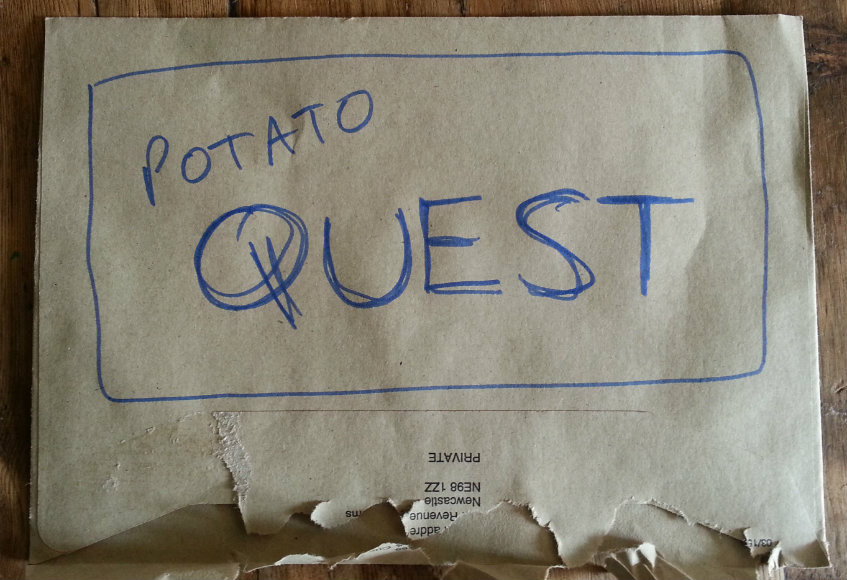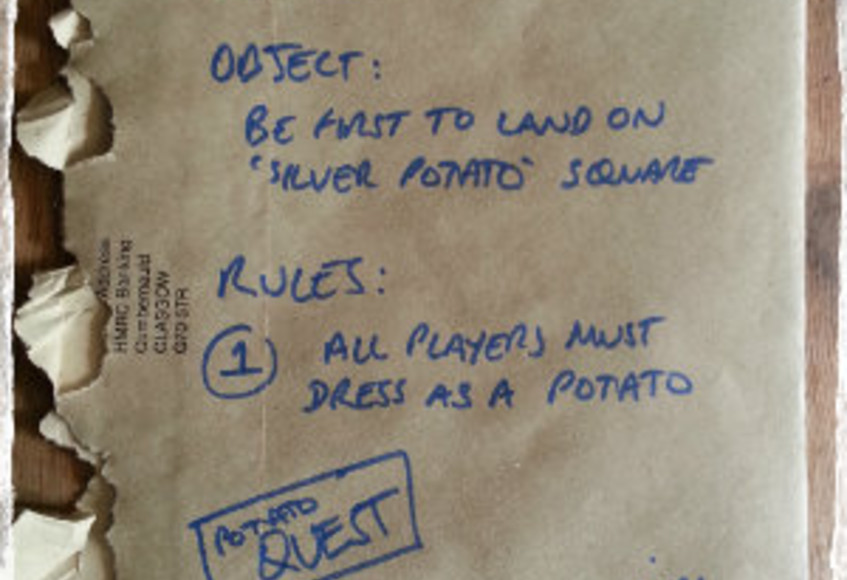
You’ve invented a new board game? Five insider tips to help it succeed...
OK – so you have a brainwave for the next smash-hit board game. Your next step, obviously, is to seek out Britain’s best board game people (*coughs modestly*) with some sketches on an envelope and a draft contract, right? Welllll… unfortunately, but not surprisingly, it’s not quite as simple as that.
We do get sent ideas for games. We don’t discourage that, but we don’t really encourage it either. Which is a bit of a woolly, unhelpful non-policy, we know. But the truth is that 99.99999999% of our grown-up games (which is what we’re talking about here) are either developed in-house or are an adaptation or extension of an existing successful format.
There are loads of reasons for this. The big one is that our team here is pretty unrivalled at coming up with concepts that have gone on to massive, massive success. What else? Well, in the spirit of helpfulness we got together with John and Minda – our Business Development Director and Head of Product Development respectively – to give you five pointers to take your idea forwards...
1. Make sure your game’s universal
Niche games can be very successful. But at Drumond Park we create games with massive production runs; ones that will be top of the pile in homes across the country. John has a thing he calls the ‘Boxing Day Test’ – would the extended family – all of them – enthusiastically gather round to play? Would it strike a chord with every single person? A single dissention and the group will choose something else to follow their turkey sandwiches.
Even our games that are ‘about’ something are pretty universal. ‘Best of British’ – well, our UK market lives in Britain, so every new player can be reasonably confident that there will be something in it for them. ‘Logo Best of TV and Movies’ is about as niche as we get – but it covers one of the few topics that touches nearly every household in the land.
2. Take care with the boundary between ‘raucous fun’ and ‘something that’s not quite everybody’s bag’
‘Not-so-quiet night in’ is the theme of this blog. Because we know very well how our grown-up games are played. There’s laughter, jokes, jovial dissent, perhaps a little shouting, articulating, grabbing and all sorts of getting into the spirit of things. But most people have a boundary beyond which they become uneasy. Where they feel that they might be – to put it frankly – making a tiny bit of a prat of themselves.
Minda is very clear about the need to stay the right side of this line – in fact it was the first thing that he brought up when we starting talking about writing a piece like this. Even a group of close friends or family have utterly different personality types. And a game that one person isn’t fully comfortable throwing themselves into simply won’t work for the whole group.
3. Be really, really self-critical
Book people like to say that ‘everybody has a book in them’. It’s the same with board games. We all grew up with them; all love them; if you have an ounce of creativity inside you then it’s likely that at some point you’ve had an idea about what might make a good one.
So recognise that your light-bulb moment has been experienced by millions before you, and that if it were as easy as that then Hamley’s would be the size of a small city. Only the very, very best ideas that have been developed and developed and tested and tested to death will ever make it past the early stage.
And that leads on to…
4. Be realistic about production costs
This is a biggie! Production costs aren’t something we sulk about when our dour, spoil-sport accountants pour cold water on our precious ideas. Zany, creative artistes we may be, but we have those costs in mind from the off. Balancing a great game experience with the realities of product development and mass production budgets takes a mountain of skill and experience, and every single element of a game has to be audited carefully.
You wouldn’t believe the vicious, relationship-ending arguments we’ve had in the office about this side of things, as sometimes an entire element of a game might have to be sacrificed to ensure that we can produce a high quality product at a price that families can afford. Which, when it comes down to it, is what we’re about – and why you’re reading this.
5. Go to the Toy Fair!
London’s annual Toy Fair is where the serious inventors hang out. These aren’t the wild-haired, potty-mouthed crackpots of the movies, but deadly professional toy- and game-inventing folk who know their market and who are tuned in to the serious minutiae of the production challenges that might face us. (Although some of them do have bad hair.)
Your attendance as a professional delegate at the Toy Fair, accompanied by a fully thought-out product with universal lots-of-fun appeal and a realistic production budget, is your calling-card to board game greatness. We look forward to seeing you there, and good luck!
#best job in the world












